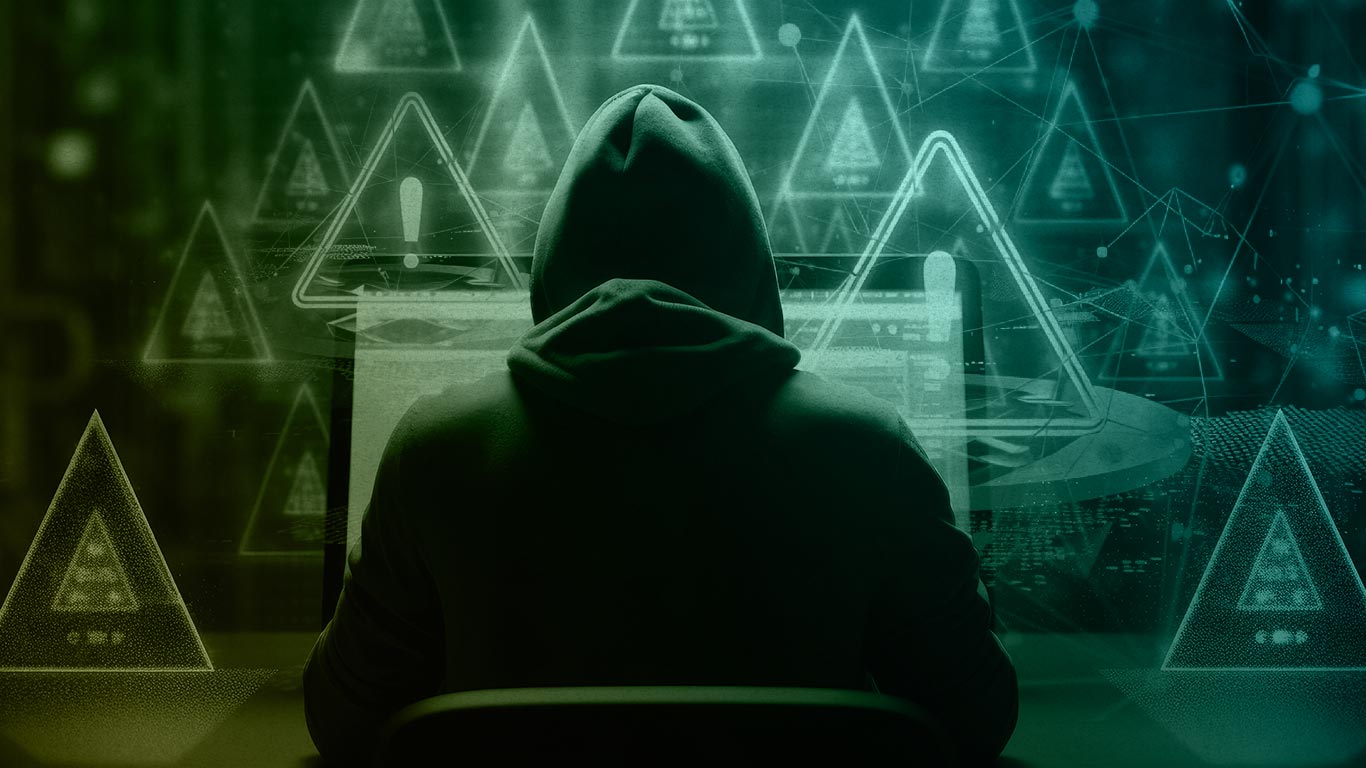
Insight

The Nasty Evolution of Ransomware in 2024
Friday, 26 April 2024
Imagine waking up to find your data locked away, with hackers demanding millions to unlock it!
In 2023, ransomware attacks skyrocketed by over 55%, impacting more than 5.000 victims globally. This alarming trend shows no signs of slowing down, making 2024 a critical year to understand the nasty evolution of ransomware.
Key Takeaways
- Hackers now use “triple threat" approach to pressure victims into paying.
- RaaS platforms make it easier for anyone to launch ransomware attacks.
- Expect to see more attacks targeting from hospitals to home offices.
- Backups, patching, strong passwords, and user education are increasingly essential.
- Consider security certifications like CompTIA Security+ or CEH® to strengthen your defenses.
So, what's fueling this nasty evolution of ransomware in 2024?
With the declining success rate of ransom payments, hackers are forced to adapt. This has led to a focus on more modern of ransomware attacks, smarter targeting, and even exploiting new technologies to maximize their impact and profitability. Ransomware isn't going anywhere, and it will only get worse in 2024.
Here's a breakdown of how these attacks are escalating!
The Triple Threat: Encryption, Exfiltration, and Exposure
Hackers are now adopting a “triple threat” approach:
- Encryption: They still lock your data, making it inaccessible.
- Exfiltration: But now, they also steal your data before encrypting it. This stolen data becomes a bargaining chip, pressuring victims to pay to prevent its release on the dark web or misuse.
- Exposure: They threaten to expose the stolen data publicly, potentially destroying reputations and causing financial damage.
RaaS: Making Ransomware Accessible to All
RaaS (Ransomware as a Service) is another worrying trend. Just like any other software service, RaaS platforms offer easy-to-use ransomware tools to anyone with an internet connection, even those with limited technical expertise. This means more cybercriminals can enter the game, increasing the volume and diversity of attacks.
Supply Chain Shenanigans: A Single Point of Failure
Hackers are increasingly targeting vulnerabilities in the software supply chain. By compromising a widely used software program, attackers can gain access to a vast network of users, creating a single point of failure that can cripple multiple businesses simultaneously.
No One is Safe: From Hospitals to Home Offices
Ransomware no longer only targets large corporations. In 2024, we can expect to see a rise in attacks targeting smaller businesses, hospitals, and even home users. Hackers understand that everyone relies on their data, so unfortunately no one is immune to ransomware.
The good news is, even with the evolution of ransomware, there are steps you can take to protect yourself!
Here are some best practices for ransomware protection to consider:
1. Backup Religiously
Implement a robust backup strategy with the 3-2-1 rule: maintain 3 copies of your data, on 2 different storage media (one local, one offsite), with at least 1 copy offline and air-gapped (not connected to the network). Regularly test your backups to ensure they are functional and complete.
2. Patch Management
Ransomware often exploits known vulnerabilities in software. Don't let outdated software create vulnerabilities. Regularly patch your operating systems, applications, and firmware to address security holes exploited by ransomware.
3. Strong Passwords and Multi-Factor Authentication (MFA)
Complex, unique passwords and MFA make it much harder for attackers to gain access to your systems. Avoid using the same password for multiple accounts and consider a password manager to help you keep track of strong, unique credentials.
4. Empower Your Users
Protect against ransomware by educating users to follow cybersecurity best practices, including recognizing phishing attempts, practicing safe browsing habits, and reporting suspicious activity. Consider offering cybersecurity training and certifications like CompTIA Security+ or even a more advanced option like the Certified Ethical Hacker (CEH®) certification to enhance your IT team's capabilities.
5. Stay Informed
Keep yourself updated on the latest ransomware threats and trends. Reliable sources include cybersecurity blogs, reputable news outlets, and security advisories from trusted vendors.
By following these best practices and remaining vigilant, you can significantly improve your defenses against the nasty evolution of ransomware. Remember, prevention is always better than cure, so contact us for further information about Multimatics’ Cybersecurity training, certification, and consultancy.
References
Dropsuite. (2023). The Evolution of Ransomware | Dropsuite.
https://dropsuite.com/articles/the-evolution-of-ransomware-and-how-to-protect-yourself/
Goldberg, C. (2020). Stop Ransomware in its Tracks with Strong Data Security.
https://cpl.thalesgroup.com/blog/encryption/stop-ransomware-in-its-tracks
Team, E. (2024). Ransomware Attacks: Complete 2024 Guide | Embroker. Embroker.
https://www.embroker.com/blog/ransomware-attacks/